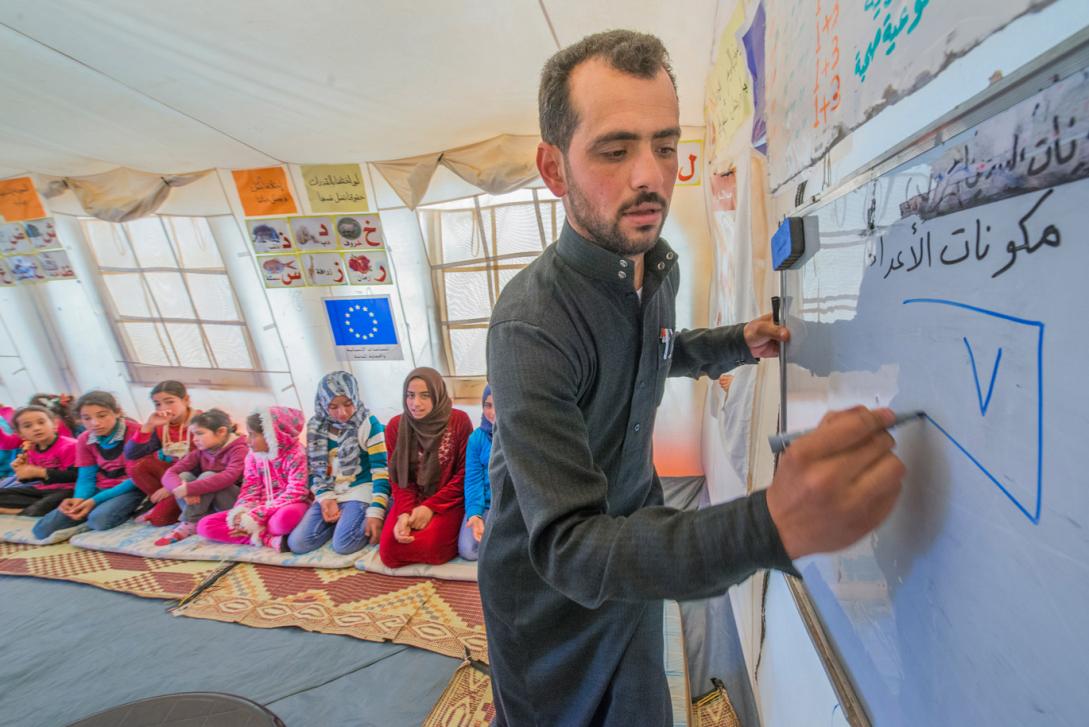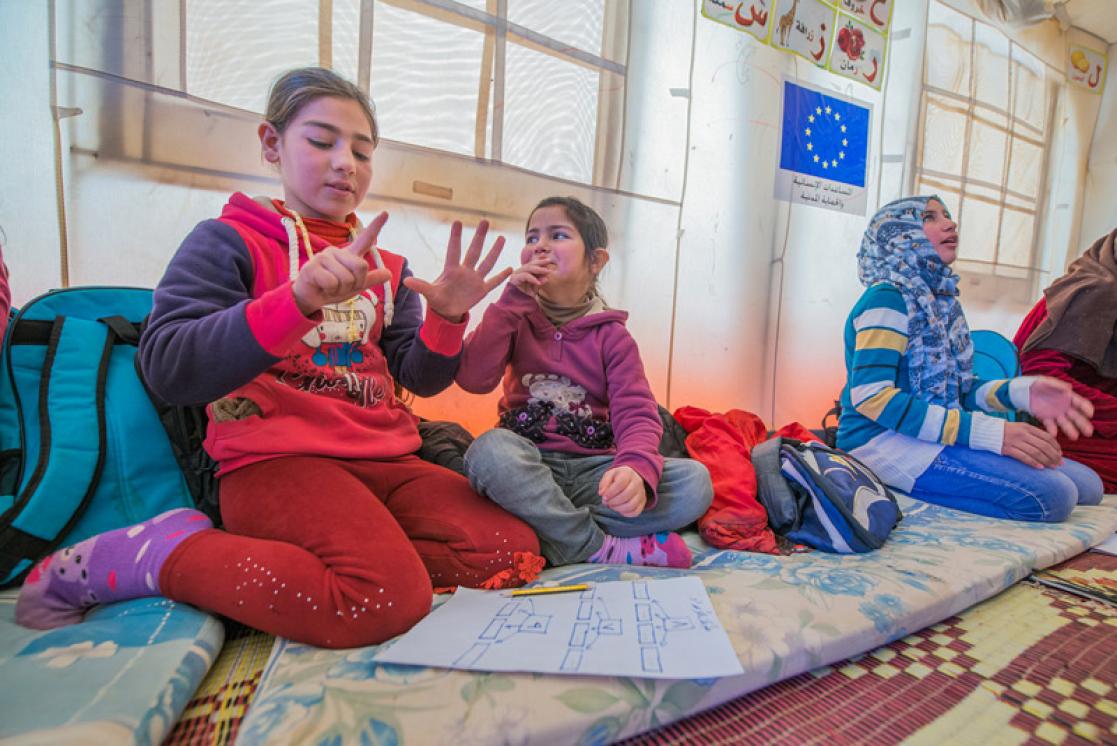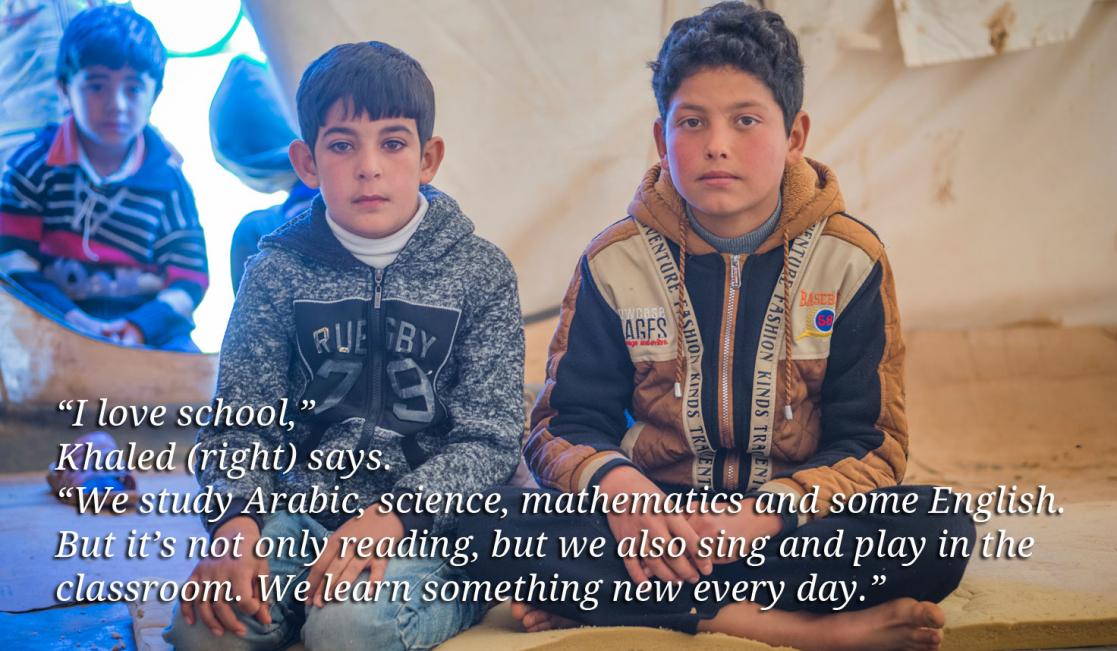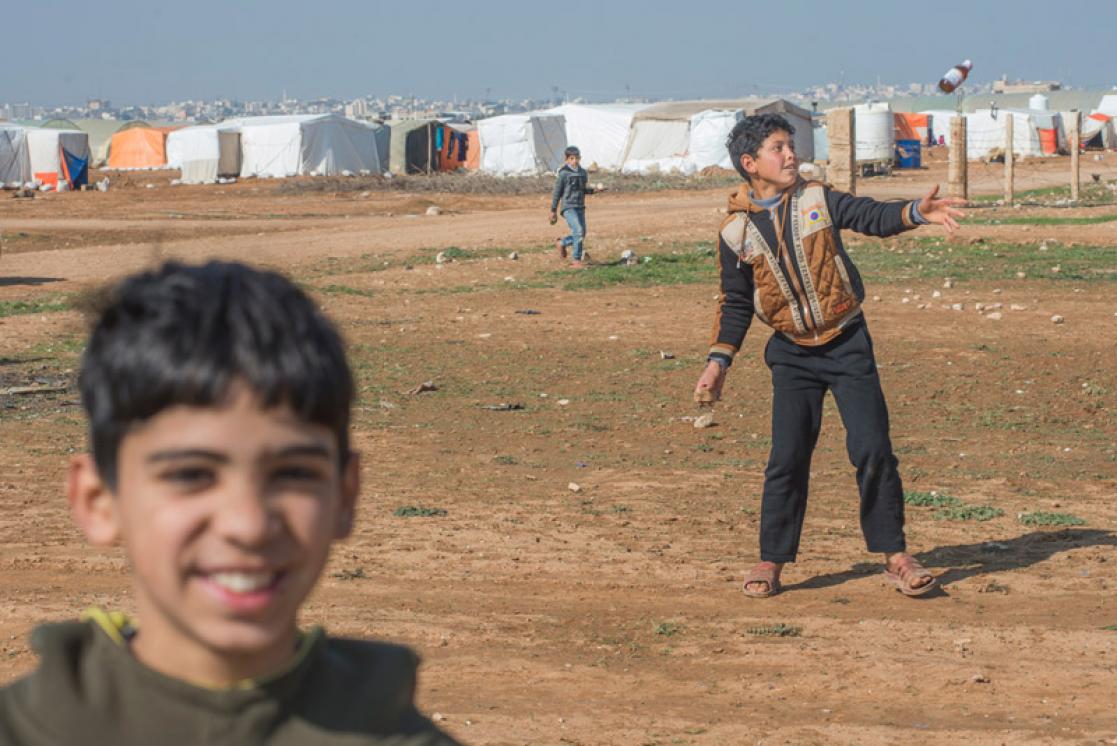Back to School: EU supporting Syrian children to go back to school

Muddy shoes pile up at the entrance of the small tent as morning classes are about to begin. A group of children, all Syrian refugees, listen attentively as Munir Ahmed al-Mahmoud, a 30-year-old volunteer teacher from the war-torn city of Hama, explains subtraction.
“What is 75 minus 8?” he asks, scribbling on a small whiteboard dangling on a hook at the front of the class.
The children, sitting on the ground with their text books on their laps, raise their hands in eager competition for the teacher's attention. One by one, the students walk up to the board to solve the problems.

Girls work through a maths problem during catch-up classes in the informal school.
Often referred to as Syria’s lost generation, at least three million children have dropped out of school since the civil war started in 2011.
Over two million children are estimated to be out of school inside Syria itself.
In Jordan, the EU's Civil Protection and Humanitarian Aid Operations department (ECHO) and its partners help thousands of children get back to school.
Outside, the sunlight bathes the hills separating the refugee settlement from Syria, only a few kilometers away. The community, made up of some 30 families living in tents near the Jordanian city of Ramtha, raises sheep and harvests vegetables in the surrounding farms.
Ten-year-old Sultan sits at the back of the class, scribbling frantically in his notebook. He says his favorite subject is Arabic because it helps him read his favorite book, “The Arabian Nights”. His friend Khaled, 13, loves to solve puzzles and problems so he prefers maths. Until recently, the boys spent most of their time working in the vegetable fields. School was a distant memory.
A few months ago all of that changed. With the assistance of the EU and its partner organisation Intersos, Sultan and Khaled recently enrolled in evening classes at a nearby Jordanian school. The morning classes in the tent, meanwhile, allow them to catch up on years of missed education.

For Munir Ahmed al-Mahmoud, a former geography student at the University of Damascus, teaching is a duty.
“The children here are like my family,” he says in a break between classes. “Supporting my community is a must. Education is also one of the main priorities for the parents here.”
Teaching, Munir adds, has also helped him forget about the trauma and hardship brought on by the war. And he has learnt a lot from the children as well.
“I have a real desire to teach and when I do, I refresh my own knowledge,” he says. “I’ve also learnt to be patient and to understand what the children are thinking and feeling.”
About half of the school-aged Syrian refugee children in Jordan are unable to attend public schools. Meanwhile, tented schools like this one are common across the region. While informal schools are unable to issue recognised certificates, they help children catch up on their education and prepare them to re-enter the formal education system—either in Jordan's public schools or back home in Syria when it is safe enough to return.
“Children who have missed years of education because of the conflict need extra support to transition back into school,” says Jenny Hobbs, an education expert with EU humanitarian aid in Jordan. “These catch-up programmes help children academically, but they also provide a positive place to re-connect with children their own age and build their confidence.”
Across the region, the EU supports a range of programmes—including psycho-social assistance, remedial education and financial support—so that families can help their children get back into formal education. The EU will also host a second Brussels Conference on Supporting the Future of Syria and the Region in April this year, putting education high on the agenda.
“This will be an important moment for education partners to reflect on the progress for Syrian children,” Hobbs says. “Great advances have been made to make sure children are back in the classroom and learning safely. However, there are still millions of children inside Syria and in neighbouring countries who cannot access education due to the conflict. We are committed to reaching and supporting those children through our humanitarian programmes in 2018 and onwards.”
At recess, Sultan and Khaled run out to play in the muddy fields surrounding the settlement. One of their favourite past times is to bowl, using a dried mud ball and empty soda bottles.
For Khaled and his classmates, going back to school is not a day to soon.

Khaled (right) says that he wants to become a successful sheep trader when he grows up. Sultan dreams of buying a large excavator so that he can dig for a living.
With EU assistance, both Syrian refugee boys have recently enrolled in a Jordanian school.
---
All Photos: Peter Biro/EU/ECHO.
